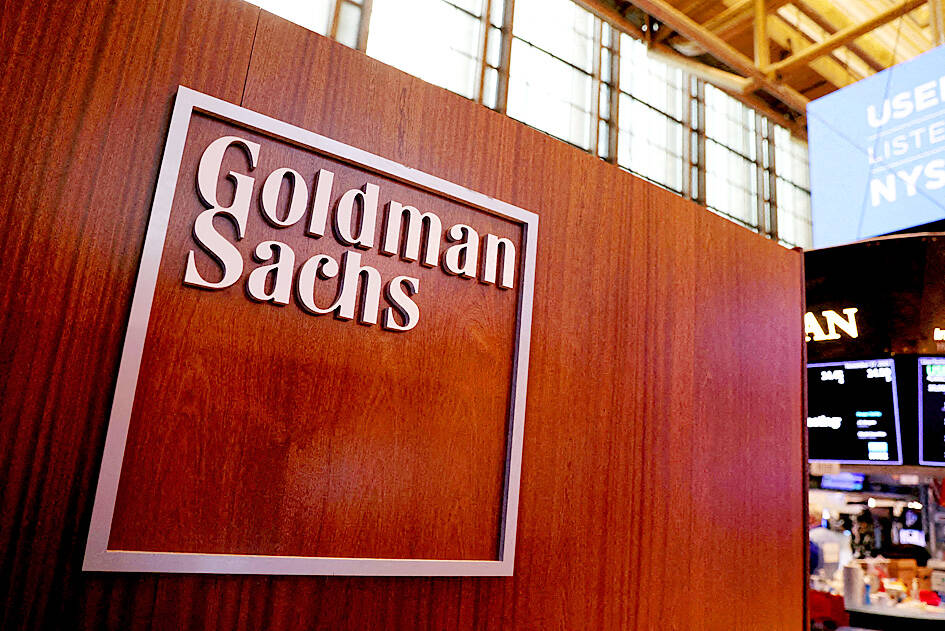Two surveys have suggested that China’s manufacturing sector improved or at least stabilized this month compared with the previous month, providing some respite following signs of a slowdown in the economy’s recovery.
China Beige Book, a US-based data provider, said its surveys showed that manufacturing output increased “notably” from last month, as did domestic and foreign orders.
Separately, Goldman Sachs Group Inc cited a pick up in the emerging industries purchasing managers’ index (PMI).

Photo: Reuters
“It’s still too early to put a nail in the coffin of the post-COVID Zero recovery,” China Beige Book said in a statement. “Manufacturing activity defied rumors of demise, though soft demand from Western economies remains a major headwind.”
Revenue and profit margins for Chinese manufacturers as well as the service and retail sectors also increased this month from the previous month, it said.
China Beige Book’s data was based on a survey of about 1,000 Chinese firms conducted between May 18 and Thursday last week.
Morgan Stanley chief China economist Robin Xing (邢自強) remained optimistic about China’s growth trajectory for the year despite the softer data last month.
“I would see recent April data weakness as a hiccup,” he said in an interview with Bloomberg TV, adding that the strength in services spending limited any need for additional stimulus.
“As we have witnessed in other Asian economies who didn’t use paychecks or fiscal transfers to jump-start the recovery, the recovery takes time because you need the service sector to recreate jobs,” he said.
China’s emerging industries PMI, which measures month-on-month changes in activity in sectors such as renewable energy, advanced manufacturing and biotechnology, showed an uptick this month compared with the previous month after seasonal adjustment, Goldman Sachs’s China economist Hui Shan (閃輝) said in a note.
The emerging industries PMI is widely seen as a leading indicator of China’s official manufacturing PMI, and the figures suggest “a tentative sign that manufacturing activity may begin to stabilize,” Hui added.
The official PMI is set to be released today.
The housing market remains a concern, with the China Beige Book survey finding weakness in the sector.
“Construction is continuing to struggle,” Shehzad Qazi, managing director of the survey company said in an interview on Bloomberg Radio. “The property market recovery remains incredibly uneven. Price growth rebounded from April, but sales slowed.”

Semiconductor business between Taiwan and the US is a “win-win” model for both sides given the high level of complementarity, the government said yesterday responding to tariff threats from US President Donald Trump. Home to the world’s largest contract chipmaker, Taiwan Semiconductor Manufacturing Co (TSMC, 台積電), Taiwan is a key link in the global technology supply chain for companies such as Apple Inc and Nvidia Corp. Trump said on Monday he plans to impose tariffs on imported chips, pharmaceuticals and steel in an effort to get the producers to make them in the US. “Taiwan and the US semiconductor and other technology industries

SMALL AND EFFICIENT: The Chinese AI app’s initial success has spurred worries in the US that its tech giants’ massive AI spending needs re-evaluation, a market strategist said Chinese artificial intelligence (AI) start-up DeepSeek’s (深度求索) eponymous AI assistant rocketed to the top of Apple Inc’s iPhone download charts, stirring doubts in Silicon Valley about the strength of the US’ technological dominance. The app’s underlying AI model is widely seen as competitive with OpenAI and Meta Platforms Inc’s latest. Its claim that it cost much less to train and develop triggered share moves across Asia’s supply chain. Chinese tech firms linked to DeepSeek, such as Iflytek Co (科大訊飛), surged yesterday, while chipmaking tool makers like Advantest Corp slumped on the potential threat to demand for Nvidia Corp’s AI accelerators. US stock

The US Federal Reserve is expected to announce a pause in rate cuts on Wednesday, as policymakers look to continue tackling inflation under close and vocal scrutiny from US President Donald Trump. The Fed cut its key lending rate by a full percentage point in the final four months of last year and indicated it would move more cautiously going forward amid an uptick in inflation away from its long-term target of 2 percent. “I think they will do nothing, and I think they should do nothing,” Federal Reserve Bank of St Louis former president Jim Bullard said. “I think the

SUBSIDIES: The nominee for commerce secretary indicated the Trump administration wants to put its stamp on the plan, but not unravel it entirely US President Donald Trump’s pick to lead the agency in charge of a US$52 billion semiconductor subsidy program declined to give it unqualified support, raising questions about the disbursement of funds to companies like Intel Corp and Taiwan Semiconductor Manufacturing Co (台積電). “I can’t say that I can honor something I haven’t read,” Howard Lutnick, Trump’s nominee for commerce secretary, said of the binding CHIPS and Science Act awards in a confirmation hearing on Wednesday. “To the extent monies have been disbursed, I would commit to rigorously enforcing documents that have been signed by those companies to make sure we get